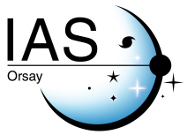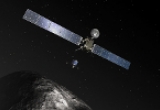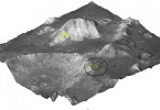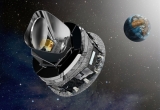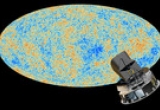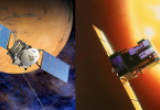Latest News
10 years 3 months ago
After a 31 months hibernation phase, the ROSETTA spacecraft has woken up as scheduled on January 20th. After this critical milestone, the spacecraft will progressively get closer to the comet, then it will get into orbit (end of June) so as to map it and to select a landing site for the Philae lander, which will reach the surface of the nucleus in November. IAS has contributed to 3 experiments on board the orbiter and the lander.
10 years 5 months ago
Mars is a volcanic world, covered nearly entirely in basaltic rocks. While the planet's geological history remains elusive for lack of in-situ samples or probes of its internal structure, its uniform surface composition was thought to result from an unremarkable magmatic history. However, this is questioned by a recent study lead by ESO and IAS, which has revealed a new rock type on Mars.
10 years 6 months ago
Since the 14th of August, the Planck satellite has departed from its observing orbit. This was the first of a series of steps followed by the switching off, on the 19th of October, of the science instruments on board: HFI (High Frequency Instrument) and LFI (Low Frequency Instrument). On Wednesday the 23rd of October, that is 1624 days after launch, communication with the Planck satellite ceased.
10 years 8 months ago
After 1,554 days in space, the Planck satellite has completed its observations on 14 August 14th, 2013. If the high frequency instrument HFI stopped operating on January 14th, 2012, the low frequency instrument LFI was able to work around an additional 600 days as its operating temperature is much higher than HFI. There remains to "park" the satellite in the solar system before saying goodbye.
10 years 10 months ago
Meeting in Paris on 18-19 June, ESA's Science Programme Committee (SPC) gave the go-ahead to continue funding science operations for 10 remarkably productive science missions (including SOHO and Mars Express), all of them working beyond their planned lifetimes and all of them nevertheless continuing to deliver exceptional science.
